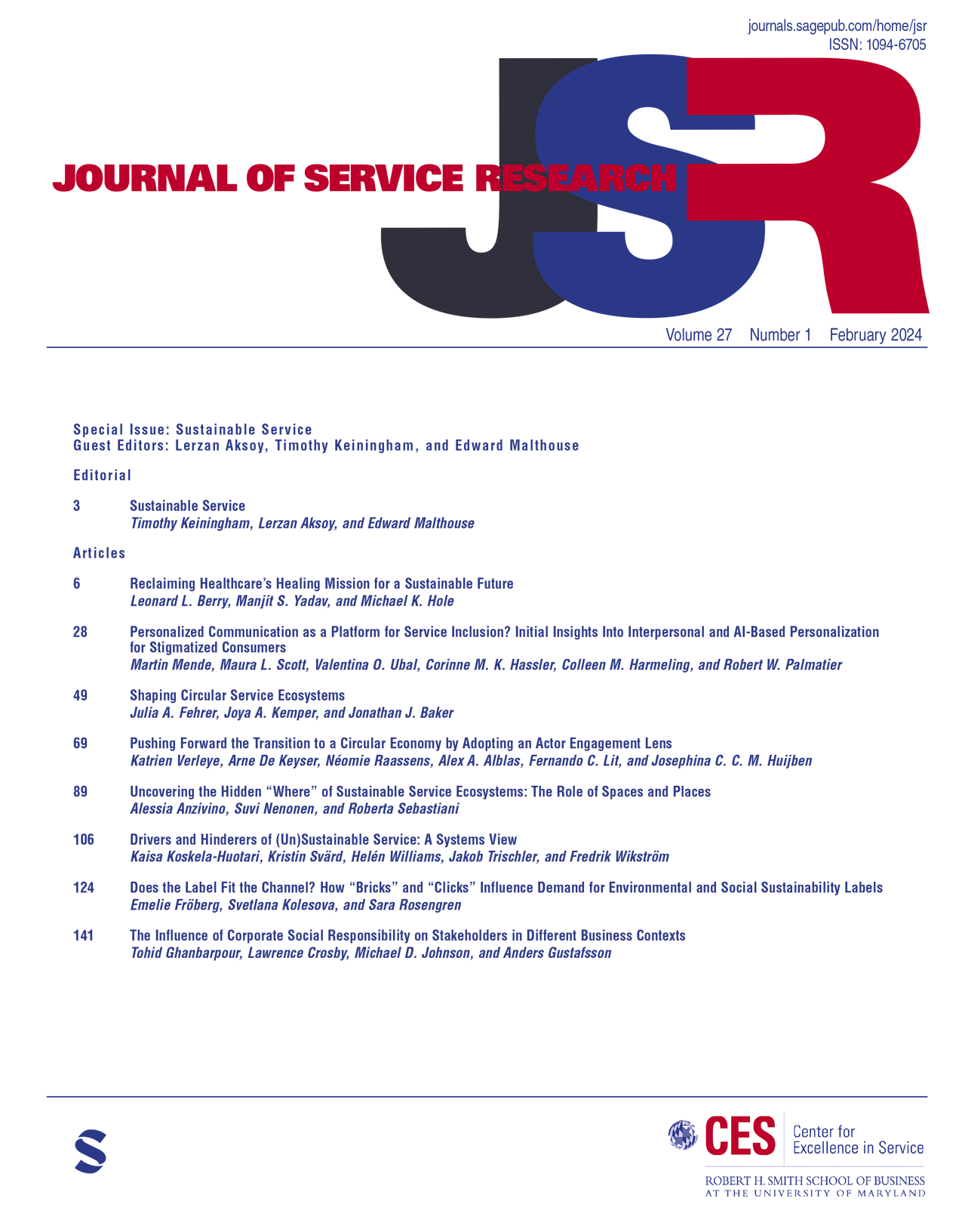To go or to let it go: A regulatory focus perspective on Bundle Consumption
IF 8.6
2区 管理学
Q1 BUSINESS
引用次数: 3
Abstract
Despite the widespread reliance on service bundles across industries (examples include theater season-tickets, vacation packages, and annual sports passes), the impact of consumer-specific factors on the post-purchase consumptions of such bundles has received limited academic attention. Drawing on regulatory focus theory, we show that a consumer’s regulatory orientation influences the consumption of service bundles, and that the impacts are mediated by construal level. Using six studies (including a field study and a quasi-field experiment using Twitter data) we illustrate that prevention-focused individuals demonstrate concrete construal and are better able to resolve the ambiguity in allocating costs and benefits to individual bundle components, leading to higher consumption. By examining the role of a consumer’s regulatory orientation, our work advances the theoretical understanding of consumer behavior in response to the bundling of services. We make an important methodological contribution by demonstrating how text-mining can be innovatively utilized to analyze consumer posts on Twitter to infer regulatory focus and understand service bundle consumption. Our studies provide practical guidance to managers seeking to infer (using publicly available Twitter data and consumer-provided inputs during purchase) and prime (using advertisements and nudges) regulatory focus to understand/influence service consumption.去还是不去:对捆绑消费的监管焦点视角
尽管各个行业普遍依赖于服务捆绑包(例如剧院季票、度假套餐和年度体育通行证),但消费者特定因素对此类捆绑包的购后消费的影响却受到了有限的学术关注。利用监管焦点理论,我们发现消费者的监管取向会影响服务包的消费,并且这种影响是由解释水平介导的。通过六项研究(包括现场研究和使用Twitter数据的准现场实验),我们说明了以预防为重点的个体表现出具体的解释,并且能够更好地解决单个捆绑组件分配成本和收益的模糊性,从而导致更高的消费。通过研究消费者监管取向的作用,我们的工作推进了对服务捆绑的消费者行为的理论理解。我们通过展示如何创新地利用文本挖掘来分析Twitter上的消费者帖子,从而推断监管重点并了解服务包消费,从而在方法论上做出了重要贡献。我们的研究为寻求推断(使用公开可用的Twitter数据和消费者在购买过程中提供的输入)和主要(使用广告和推动)监管重点以理解/影响服务消费的管理者提供了实用指导。
本文章由计算机程序翻译,如有差异,请以英文原文为准。
求助全文
约1分钟内获得全文
求助全文
来源期刊

Journal of Service Research
BUSINESS-
CiteScore
20.30
自引率
6.50%
发文量
28
期刊介绍:
The Journal of Service Research (JSR) is recognized as the foremost service research journal globally. It is an indispensable resource for staying updated on the latest advancements in service research. With its accessible and applicable approach, JSR equips readers with the essential knowledge and strategies needed to navigate an increasingly service-oriented economy. Brimming with contributions from esteemed service professionals and scholars, JSR presents a wealth of articles that offer invaluable insights from academia and industry alike.
 求助内容:
求助内容: 应助结果提醒方式:
应助结果提醒方式:


